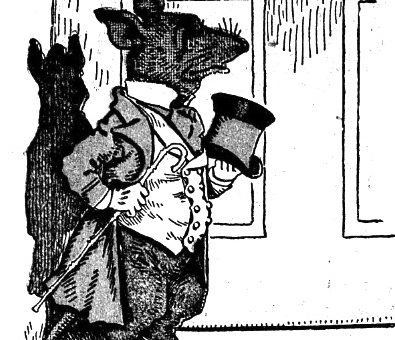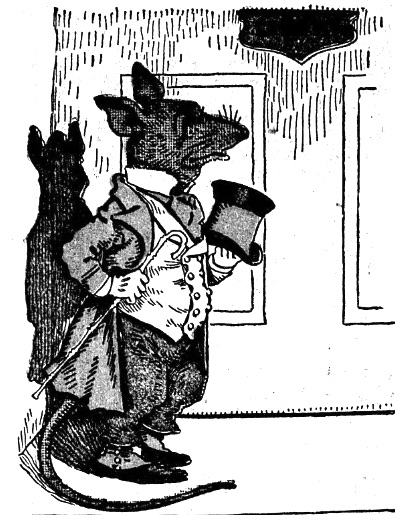
Yes, May bugs received excommunication in a town of Switzerland and field rats were taken to court and given an eviction notice in Tyrol.
The article below was originally published in 1880 and tells us the amusing circumstances around these two events.

Old Time Superstitions
In 1474 the May bug became very troublesome in the neighborhood of Berne, Switzerland, and the people, after trying in vain all other means, called upon the bishop of Lausanna, who solemnly excommunicated the insect as “an irrational, imperfect creature, whose kind was never inclosed in Noah’s ark.”
The bugs were warned to disappear in six days, or if they did not, to appear for trial at Wivelsburg on the sixth day at one o’clock. Neither command was obeyed, as a contemporary chronicle says, “because of our sins.”
In Tyrol, in 1519-20, a civil suit was actually begun against the field rats. One Simon Fliss, a peasant, entered a formal complaint before the judge, William of Hasslingen, that said field rats were doing great damage in his parish.
Fliss chose Schwarz Minig as his attorney, and the court showed its fine sense of justice by naming Hans Grinebner to defend the cause of the rats. But the witnesses were all on the side of the plaintiff, and the decision was rendered as follows:
“After accusation and defense, after statement and contradiction, and after due consideration of all that pertains to justice, it is by this sentence determined that those noxious animals called field rats must, within two weeks after the promulgation of this judgement, depart and forever remain far aloof from the fields and the meadows of Stilf. But if one or several of the animals are in delicate health, or unable on account of their youth to follow them, then they shall enjoy, during further two weeks, safety and protection from everybody, and after these two weeks depart.”
Whether the rats recognized the authority of Judge William, and emigrated in obedience to his orders, is not stated; but the probabilities are that they gave “straw bond” and appealed the case as a great many rats do nowadays.
Source: The Abbeville press and banner. (Abbeville, S.C.), 28 April 1880.

